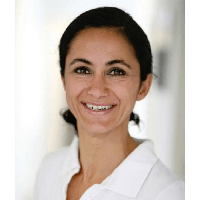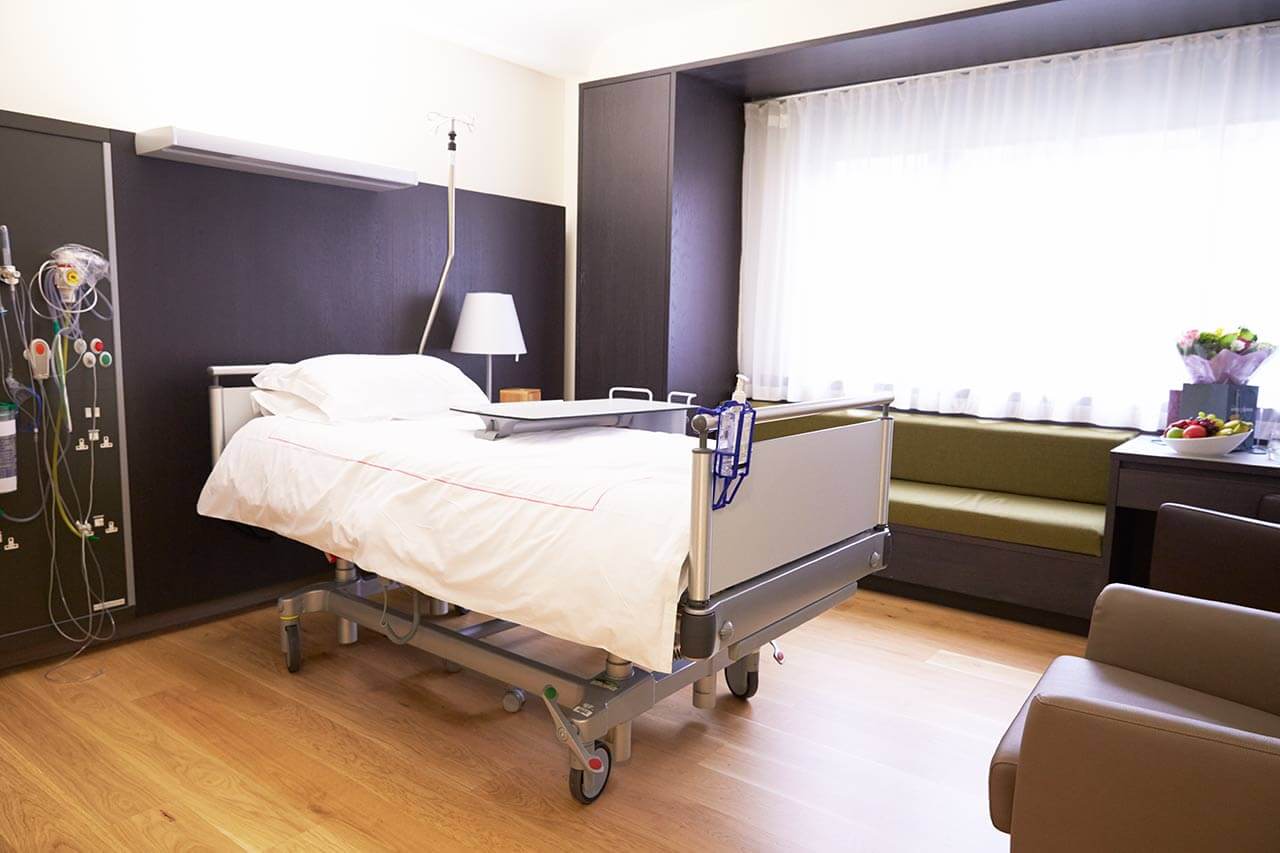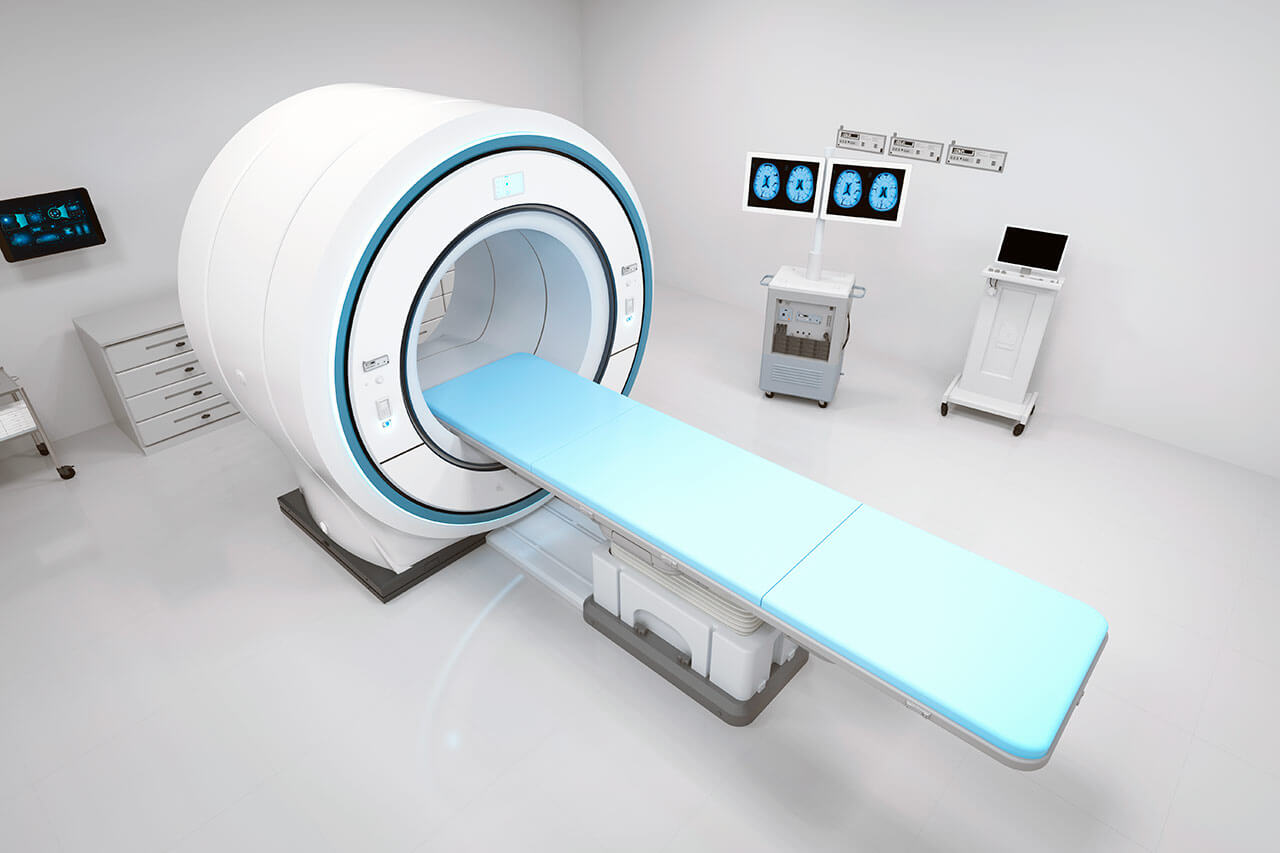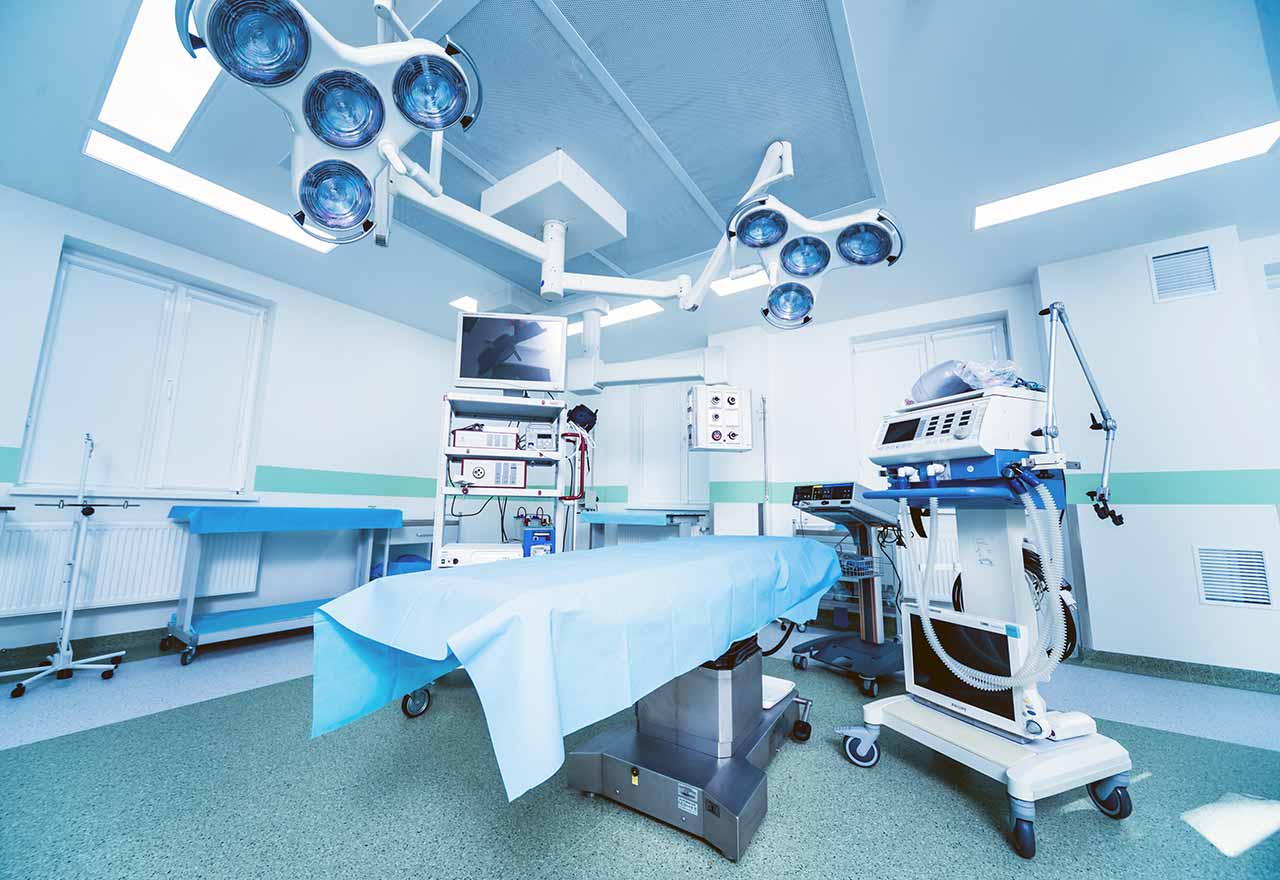
The program includes:
- Initial presentation in the clinic
- clinical history taking
- physical examination
- review of medical records
- laboratory tests:
- complete blood count
- biochemical analysis of blood
- TSH-basal, fT3, fT4
- indicators of inflammation (CRP, ESR)
- indicators blood coagulation
- otorhinolaryngological examination:
- Dix-Hallpike testing
- nystagmus testing:
- spontaneous nystagmus
- positional nystagmus
- artificial nystagmus testing
- speech audiometry
- tympanometry
- eustachian tube testing
- testing of blood pressure and buzzing
for tinnitus examination - otoacoustic emission test
- brainstem audiometry
- VEMP testing
(Vestibular evoked Myogenic Potential) - video head impulse testing
- eye movement testing
- CT of petrous pyramid
- contrast-enhanced MR
imaging on labyrinth in 3D
- preparation according to preoperative standard
- replacement of the stapes bone
of the middle ear with titanium implants - symptomatic treatment
- control examinations
- the cost of essential medicines and materials
- nursing services
- full hospital accommodation
- explanation of future recommendations
- written statement
Required documents
- Medical records
- Audiometry, tympanometry (if available)
- Temporal bone CT scan (if available)
Service
You may also book:
 BookingHealth Price from:
BookingHealth Price from:
About the department
The Department of Adult and Pediatric Otolaryngology, Allergology, Head and Neck Surgery at the Alfried Krupp Hospital in Essen-Steele offers the full range of medical services in the fields of its competence. The department has been in successful clinical practice for more than 30 years, so it has accumulated vast experience in the field of conservative and surgical treatment of ENT diseases, surgical interventions in the head and neck, as well as medical care to patients with allergic diseases. In the field of pediatric otolaryngology, the key focus is on hearing screening in newborns and young children, as well as on the follow-up medical care for young patients with hearing loss. The department's surgical options include surgical procedures for diseases of the nose, paranasal sinuses, ears, interventions for the treatment of snoring, removal of tonsils, neck cysts and salivary glands, and laryngeal surgery. The department also performs facial plastic surgery: rhinoplasty, otoplasty, blepharoplasty, removal of facial skin tumors with the closure of defects using flap surgery, treatment of wrinkles with Botox and filler injections. All the department's doctors devote a sufficient amount of time to personal communication with their patients, strive to choose the optimal therapeutic regimen with the use of the most sparing treatment methods. The high professionalism of the medical team and the excellent equipment available in the department allows the medical facility to meet high standards of medical care. The department is headed by Dr. med. Shabnam Fahimi-Weber.
The key to successful treatment is accurate diagnostics, and therefore the department has modern diagnostic rooms intended for examinations in case of suspected hearing loss and ear pathologies (pure-tone threshold audiometry, speech audiometry, brainstem auditory evoked response testing, tympanometry, etc.), nasal examinations (ultrasound and endoscopy, rhinomanometry), laryngeal examinations (endoscopy and stroboscopy) and other procedures. The department offers digital volume tomography, which is an indispensable diagnostic test for suspected diseases of the paranasal sinuses, including sinus infections, cysts and polyps, middle ear diseases, chronic otitis media and ear anomalies. The advanced diagnostic technique allows reproducing high resolution 3D images of anatomical structures of the head and neck.
The department's allergologists have in their command a variety of diagnostic tests for detecting allergies: prick tests, scratch tests, epicutaneous and intracutaneous tests, special food allergy tests, nasal provocation tests, RAST test, etc. With the available diagnostic data, the attending physician determines the treatment tactics, which usually includes oral or subcutaneous desensitization. The department uses naturopathy as a complementary treatment option for allergies. The specialists apply acupuncture, autohemotherapy, classical homeopathy.
With appropriate clinical indications, the treatment of ENT diseases is based on the use of drug therapy and other conservative methods. Nevertheless, the department's otolaryngologists quite often resort to surgical treatment. Depending on the complexity of the upcoming surgery, doctors make a decision on the need for hospitalization – minor surgical interventions are performed on an outpatient basis. The department's specialists always prefer endoscopic and minimally invasive surgical techniques, after which recovery takes only a few days.
The department's therapeutic offer is complemented by pediatric otolaryngology. Special attention in this field is paid to newborn hearing screening, as well as to the diagnostics of hearing pathologies in young children and adolescents. In addition, pediatric otolaryngologists specialize in tonsillectomy and tonsillotomy. In the case of the first operation, the child must be hospitalized, since the intervention is carried out under general anesthesia. In some cases, tonsillectomy can be performed using a sparing coblation technique. Tonsillotomy is performed using radio frequency techniques or with the use of minimally invasive techniques. The surgical intervention is also performed under general anesthesia, but in this case there is no need for young patient hospitalization.
The department's range of medical services includes:
- Conservative treatment
- Pharmacotherapy
- Oral and subcutaneous desensitization for allergy treatment
- Naturopathy: acupuncture, autohemotherapy, classical homeopathy and neural therapy
- Surgical treatment
- Nasal surgery
- Septoplasty
- Septorhinoplasty
- Radiofrequency ablation
- Ear surgery
- Eustachian tube dilation
- Reconstructive interventions on the tympanic membrane
- Middle ear surgery
- Surgical removal of tonsils in children
- Total removal of tonsils (tonsillectomy)
- Partial removal of tonsils (tonsillotomy)
- Removal of nasopharyngeal tonsils
- Neck and salivary gland surgery
- Removal of neck cysts
- Removal of cervical lymph nodes
- Removal of salivary glands
- Laryngeal surgery
- Plastic surgery in the face and head
- Otoplasty
- Rhinoplasty
- Blepharoplasty
- Removal of skin neoplasms and closure of defects using flap surgery
- Treatment of wrinkles with botox and filler injections
- Surgery for snoring treatment
- Removal of palatine tonsils
- Uvulopalatoplasty
- Correction of deviated septum
- Turbinate reduction
- Nasal surgery
- Other therapeutic options
Curriculum vitae
Higher Education and Professional Career
- Study of Medicine at the Universities of Mainz, Essen, Duesseldorf and Bochum.
- Work in the Department of Otolaryngology at the University Hospital Bochum.
- Participation and supervision of various scientific projects at the Universities of Bochum and Duesseldorf in cooperation with the Center of Advanced European Study and Research (CAESAR).
- Regular participation in advanced training courses and congresses for further qualifications of the North Rhine Medical Association.
Clinical Interests
- Nasal surgery.
- Paranasal sinus surgery.
- Facial plastic surgery.
- Allergology.
- Naturopathy.
- Pedaudiology.
- Pain management.
Memberships in Professional Societies
- German Society of Oto-Rhino-Laryngology, Head and Neck Surgery (DGHNO).
- German Society of Aesthetic Surgery (GÄCD).
- Rhinoplasty Society of Europe.
- Professional Association of Otolaryngologists.
- Medical Association of German Allergists (AEDA).
Photo of the doctor: (c) Alfried Krupp Krankenhaus
About hospital
The Alfried Krupp Hospital in Essen-Steele is one of the best and most advanced medical facilities in the Ruhr area. The medical complex is an academic hospital of the University of Duisburg-Essen, thanks to which it extremely quickly implements innovative diagnostic and therapeutic methods into clinical practice. The hospital is supported by the Alfried Krupp von Bohlen und Halbach Foundation. The doors of the medical complex were first opened for patients back in 1870, and in 1980 the hospital building was completely renovated and upgraded with modern equipment. The hospital has seven specialized departments, each of which has a competent team of highly qualified doctors specializing in the treatment of a particular group of diseases. The patients of the hospital receive inpatient and outpatient medical care. The hospital has 320 beds for patient hospitalization.
The priority areas of work of the medical facility include general and abdominal surgery, plastic, aesthetic and reconstructive surgery, hand surgery, treatment of ENT diseases, musculoskeletal injuries and diseases, gastrointestinal and respiratory diseases, as well as treatment of urologic diseases. The doctors working at the hospital have excellent qualifications in laparoscopic, endoscopic and da Vinci robot-assisted surgery. Therefore, if surgical treatment is required, open traumatic operations are performed very rarely – only in especially complex clinical cases. The use of modern surgical techniques avoids extensive skin and soft tissue incisions, reduces surgical risks and the recovery period.
The medical team of the hospital consists of leading German doctors with profound clinical training and successful experience. Doctors admit patients with diseases of varying severity, including serious pathological conditions, and therefore the patients' credit of trust in specialists is very high. Particular attention is paid to an individual approach to each patient and his clinical case. In addition, doctors take care of the comfort of their patients during the therapeutic process – the patient with his needs and wishes is always a top priority.
Photo: (с) depositphotos
Accommodation in hospital
Patients rooms
The patients of the Alfried Krupp Hospital in Essen-Steele live in single comfortable rooms with all amenities. Each patient room has an ensuite bathroom with shower and toilet. The furnishing of the patient room includes an automatically adjustable bed, a bedside table, a table and chairs, a wardrobe, a telephone and a TV. The rooms also have Wi-Fi.
The hospital offers enhanced-comfort rooms. Unlike standard rooms, such patient rooms additionally include upholstered furniture, a safe, a mini fridge and an air conditioner. The bathroom has towels, a bathrobe, toiletries and a hairdryer. Fresh newspapers, seasonal fruits, coffee and tea are brought to the patient room every day upon the request.
Meals and Menus
The patients of the hospital are offered three meals a day. Breakfast and dinner are served buffet style, while for lunch patients are offered a choice of several set menus. Patients staying in the enhanced-comfort rooms are offered a special menu with a wide range of delicious European dishes.
If for some reason you do not eat all the foods, you will be offered an individual menu. Please inform the medical staff about your dietary preferences prior to the treatment.
Further details
Standard rooms include:
Religion
The services of representatives of religions are available upon request.
Accompanying person
During an inpatient program, an accompanying person can stay with you in the patient room or in a hotel of your choice.
Hotel
During an outpatient program, you can stay in a hotel of your choice. The managers will help you choose the most suitable options.




